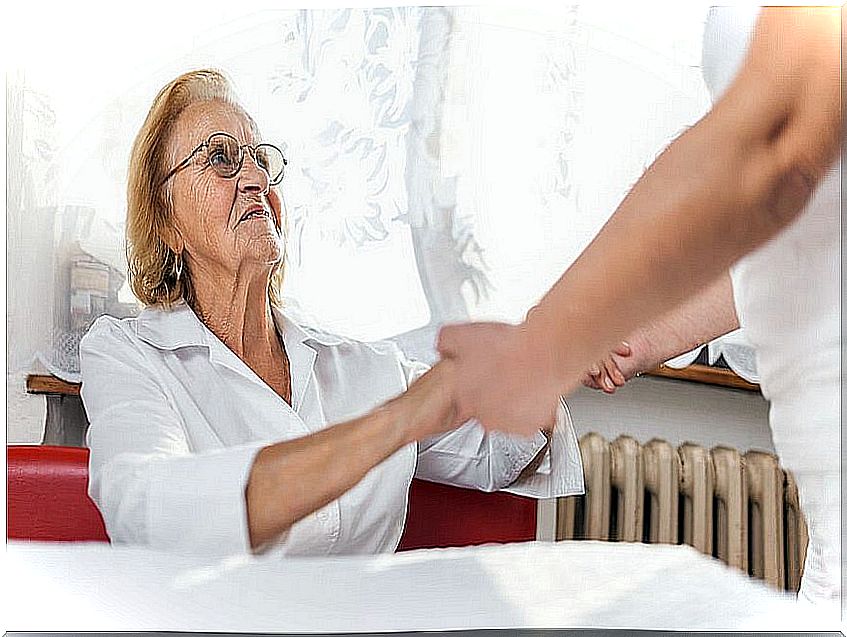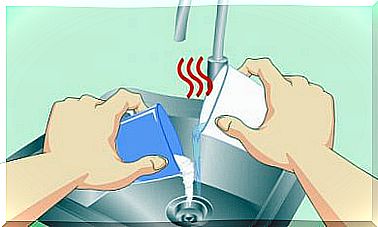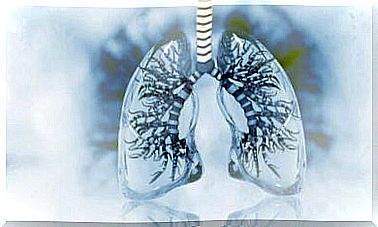What Role Does The Family Play In Treating Alzheimer’s?
The role of the family in treating Alzheimer’s disease can be quite complicated. The family is also affected by the disease, causing rejection, irritability and inability to accept the reality that is coming.
Mental illnesses are still seen as a social stigma, which is why a favorable family environment is essential for the mental health of the patient and that of those around him. What must be considered? We will go over some recommendations below.
Alzheimer’s disease
Alzheimer’s disease is the most common cause of dementia. Thus, it is a neurodegenerative disease where the mental faculties progressively deteriorate, causing serious behavioral disorders. It is characterized by:
- Memory loss.
- Alterations in language.
- Loss of sense of orientation.
- Difficulties planning tasks or solving everyday problems.
This cognitive decline is usually accompanied by changes in personality and behavior. In addition, the ability of the person to be autonomous and carry out the activities of daily life is diminishing, so that in the more advanced stages of the disease, they will need help and care practically all day.
Unfortunately, there is currently no effective treatment that helps reverse or completely stop the course of the disease, although there are palliative drug treatments that help reduce the intensity of some symptoms.
As important as drug treatment are non-drug therapy and family and professional support, based on stimulating cognitive abilities and avoiding isolation to improve the patient’s mental health. According to the National Center for Biotechnology Information in the United States, some of these strategies could improve people’s cognitive performance and thus increase their independence.
What role does the family play in treating Alzheimer’s?

It is almost evident that the role of the family in the management and treatment of Alzheimer’s disease constitutes a fundamental pillar. So, l to keep the family attitude against the patient will directly influence the way in which he assumes his illness.
A loving, serene, proactive and collaborative attitude with the medical and therapeutic team on the part of the family is vital to serve as a frame of reference for the patient and transmit confidence.
Well, how do we achieve this? To do this, it will be convenient to establish a routine that allows organizing the patient’s daily activities. We will detail it in the following space.
Family environment and Alzheimer’s treatment
The role of the family in the treatment of Alzheimer’s is crucial. Having a daily order and following certain guidelines can help us manage the situation. Here are a series of recommendations:
- Establishing routines can be of great help. If the patient has automated actions on a daily basis, they may feel more independence. For example, always respect a dinner and bath schedule before going to bed.
- Establishing direct communication, avoiding very complex sentences, looking the person in the eye and staying calm can help the patient feel more understood.
- Help him and make him participate in the activities. Do not treat him like a small child, because although it is difficult for him to develop basic skills, try to give him his own independence as much as possible.
- Be patient. Do not take the mistakes or bad words that you may have wrong, they are the product of the disease.
- Stay calm and do not argue with the patient, it will not reach any term and only generates frustration.
- Show affection and empathy. Put yourself in their shoes.
- Help him to keep his mind always active, doing exercises that stimulate his cognitive abilities.
However, and even if we take all these aspects to bear in mind, the family can “overflow.” It is also essential that the family member who cares for a person with Alzheimer’s knows and is aware that they must also take care of themselves with the necessary help to do so.
Leaning on trusted people around you, talking with your friends about how you feel and how the relative’s illness affects you, allowing yourself your space and free time, for example, are some of the measures that can be carried out. To take care of someone, it is important that that caregiver is healthy.
Support for Alzheimer’s patients and their families

The demand for care for dependent people has increased considerably in recent years. Factors such as the aging of the population or changes in the family model determine this trend.
To meet the needs of people in a situation of dependency and their families, the System for Autonomy and Care for Dependency (SAAD) has been created in Spain. This network of services includes the State Reference Center (CRE) for Attention to People with Alzheimer’s, and is located in the province of Salamanca (Castilla y León). State Reference Centers (CRE) for Alzheimer’s offer:
- Helps dependent Alzheimer’s patients.
- Help families of Alzheimer’s patients.
- They investigate the disease and offer direct care and referral services.
The role of the family in the care of Alzheimer’s patients
So what role does the family play in treating Alzheimer’s? Remember that being empathetic and also thinking about how we would like to be treated can help us handle the situation.
In any case, it is also very important that you stay afloat, to be the support of your family member it is vital to enjoy good mental and physical health. Lean on specialized centers and professional help to improve your quality of life and the quality of life of your family member.









